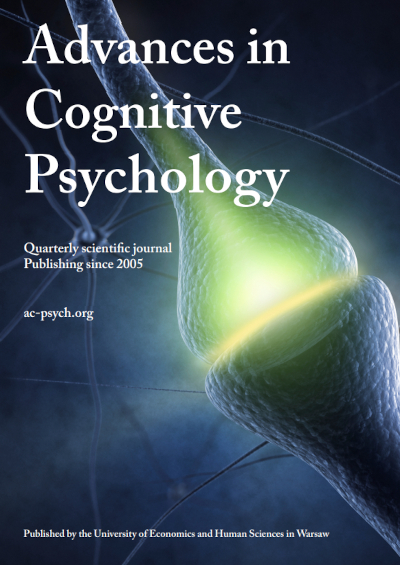About this journal
Advances in Cognitive Psychology (ACP) is an open access, quarterly peer-reviewed scientific journal dedicated to research on cognitive models of various aspects of psychology.
Since the 1970s, researchers have tried to understand the way mental and cognitive systems influence various behaviors and attitudes, how such systems develop, what are their functional, evolutionary origins, and what are their physical and psychological processes. Our journal attempts to disseminate original empirical (2.5k word brief reports; 5k single study; 10K word multistudy) and theoretical/review/meta-analyses articles (10K word), as well as replications (2.5k word brief reports), reports of null findings (2.5k word brief reports), and literature reviews (10K word) about research that places the mind and mental processes as central features of psychological systems and research as opposed to purely environmentally deterministic or behaviorist models.
To do so, our journal is broken up into three parts, run by Section Editors and reviewed by specialized academics from around the world: Attitudes, Beliefs, and Behavior (Andrew G. Thomas); Cognition, Intelligence, and Thinking (Ludmiła Zając-Lamparska); and Personality and Individual Differences (Radosław Rogoza). Please see the Author Guidelines section for details and submission instructions.
ACP also promotes and encourages open science, pre-registration of study and is a peer community in registered reports (PCI RR) - friendly journal. We are also indexed in a range of major databases, including PubMed, Scopus, JCR, and PsycINFO (eISSN: 1895-1171).
In 2022-2024, Advances in Cognitive Psychology received financing from the Ministry of Science and Higher Education, Poland within the program Rozwój Czasopism Naukowych (application/contract no. RCN/SN/0494/2021/1; total value of the project: 91,908.00 PLN; funds granted directly by the Ministry: 45,954.00 PLN; date of signing the contract: 23.12.2022). The aim of the project is to improve the scientific and editorial standards of scientific journals as well as to increase their international impact and reach. The funds received as part of the program are used by Advances in Cognitive Psychology to (a) finance access to an editorial system software suite, including an anti-plagiarism tool, and to register DOI numbers for the published articles, (b) implement current best practices into the editorial workflow on the level of the editorial system suite, including the addition of ORCID numbers, (c) finance access to typesetting software, and (d) promote the journal among potential authors and readers online.
W latach 2022-2024 czasopismo naukowe Advances in Cognitive Psychology otrzymuje dofinansowanie w ramach programu Rozwój Czasopism Naukowych Ministerstwa Nauki i Szkolnictwa Wyższego (nr rejestracyjny wniosku/umowy: RCN/SN/0494/2021/1; wartość dofinansowania przyznanego przez Ministerstwo: 45,954.00 PLN; całkowita wartość zadania: 91,908.00 PLN; data podpisania umowy o dofinansowanie zadania: 23.12.2022). Projekt ma na celu podniesienie standardów naukowych i wydawniczych czasopism naukowych oraz zwiększenie ich międzynarodowego wpływu i zasięgu. Dofinansowanie przyznane Advances in Cognitive Psychology przez Ministerstwo są przeznaczone na: (a) opłatę licencji/dostępu do pakietu oprogramowania redakcyjnego, w tym systemu antyplagiatowego, oraz rejestracji numerów DOI dla publikowanych artykułów; (b) wdrożenie współczesnych najlepszych praktyk wydawniczych na poziomie system oprogramowania redakcyjnego, w tym integracji numerów DOI, (c) opłatę licencji/dostępu do programu do składu artykułów oraz (d) promocję czasopisma online wśród potencjalnych autorów i czytelników.

Issue 1 On line:
Relationship Between Self-Control, Impulsivity, Reinforcement Sensitivity, Shopping Characteristics And Problematic Shopping Among Female and Male Emerging Adults
Andrzej Cudo, Agnieszka Fudali-Czyż, Natalia Kopiś-Posiej, Mark D. Griffiths

Andrzej Cudo, The Institute of Psychology, The John Paul II Catholic University of Lublin, al. Racławickie 14, 20-950 Lublin, Poland
Email: andrew.cudo@gmail.com
Problematic shopping, also known as compulsive buying or shopping addiction in its most extreme form, is a growing concern in modern consumer behavior. The present study examined the relationships between self-control, impulsivity, reinforcement sensitivity, shopping characteristics, and problematic shopping among emerging adult females and males. A sample comprising 1,075 Polish participants (835 females, 240 males), aged 18–30 years, was surveyed. The key variables (i.e., problematic shopping, impulsivity, self-control, and reinforcement sensitivity) were assessed with validated psychometric instruments. Path models were applied to evaluate the relationships between variables and gender differences. Problematic shopping was positively associated with motor and attentional impulsivity among females, while goal maintenance was negatively associated with problematic shopping among males. Among females, paying attention to product brands and credit/loan use was significantly associated with problematic shopping, while there was a negative association with paying attention to price. In both groups, problematic shopping was associated with increased online and offline shopping time. Results also indicated that reinforcement sensitivity (behavioral activation system – reward interest) was negatively associated with problematic shopping among females. The results suggested that motor impulsivity was more important in problematic shopping among females than males. The present study highlights the importance of impulsivity, self-control deficits, and shopping characteristics in developing problematic shopping behaviors. Gender differences indicate distinct mechanisms underlying problematic shopping tendencies. The findings contribute to a better understanding of problematic shopping and offer insights for targeted prevention and intervention strategies.
Keywords: problematic shopping, impulsivity, self-control, reinforcement sensitivity, consumer behaviorA Brief Form of the Empathic Sensitiveness Scale – Validation of the SWE-Short (S-SWE)
Maria Kaźmierczak, Sylwiusz Retowski, Mieczysław Plopa

Sylwiusz Retowski, SWPS University, Department of Psychology in Sopot, Polna 16/20, 81-745 Sopot.
Email: sretowski@swps.edu.pl
Mark Davis's (1999) theoretical model of empathy has garnered significant interest from researchers, as the multidimensional approach to empathy has been shown to be both theoretically and practically valid. The Polish adaptation of the empathy measurement method (Kaźmierczak et al., 2007) has proven effective across numerous studies, though one limitation is the scale's length (28 items). Motivated by successful efforts to develop shorter empathy scales (Grevenstein, 2020; Ingoglia et al., 2016), we set out to create a brief version of the scale in Polish. Based on the results of CFA conducted on two independent samples (n1 = 1841; n2 = 1835), we propose a 15-item version of the SWE-short (referred to as S-SWE). Similar to the 2007 version, the Polish SWE-short comprises three components: Empathic Concern, Personal Distress, and Perspective Taking. The analyses provide strong evidence that the SWE-short aligns well with the theoretically predicted model. While the reliabilities of all subscales are comparable to or slightly lower than those of the full version (Kaźmierczak et al., 2007), they are consistent with the results obtained by Davis (1980). Notably, negatively worded items were removed, as recommended by earlier research (Ingoglia et al., 2016). The intercorrelations between the empathy dimensions remained consistent with those observed in the original SWE. Convergent validity of the short version of the scale was also confirmed. Two from the SWE-short subscales were negatively correlated with psychopathy, Machiavellianism and narcissism. Additionally, measurement invariance between women and men was examined, and no significant differences due to measurement bias were identified.
Keywords: empathy, empathic concern, perspective taking, personal distress, CFAThe Impact of Cues on Children’s Response in Situations Involving Dangerous Complementary Actions
Liang Zhao, Biting Yan, Yuanyuan Wei, Yang Zhang

Liang Zhao, School of Education, Baoji University of Arts and Sciences, Baoji, No. 1 Hi-Tech Avenue, Baoji, Shaanxi 721000, China.
Email: acefgh123@163.com
Imitation is a crucial process through which humans learn. When individuals observe the actions of others, their corresponding action systems are automatically activated. Moreover, when the observed actions involve interaction intentions that require individual feedback, their response transitions from imitating the observed actions to performing complementary actions. Complementary actions refer to scenarios in social interactions where individuals perform physically inconsistent but goal-congruent behaviors to achieve collaborative tasks (e.g., one person hands a cup while another grasps it). Owing to the incomplete development of children’s cognitive and self-regulatory faculties, it is imperative to investigate the manner in which children perceive and respond to danger cues in dangerous complementary contexts that require feedback. In this study, primary school students were selected as the participants for the experiment. In Experiment 1, the impact of text cues on individual responses were investigated, with the results indicating that in the absence of text cues, a complementary effect was observed in both dangerous and neutral situations. In Experiment 2, the impact of picture cues on individual responses was investigated and the results showed that in the neutral situation, the presence or absence of picture cues had no significant effect on the complementary effect. In the absence of a picture cue in the dangerous situation, the complementary effect was significant, whereas it diminished when there was a picture cue. These findings demonstrate a clear influence of danger-signaling cues on young children’s reactions to potentially dangerous actions, especially when presented within a complementary context.
Keywords: action situation, imitation, complementary effect, cues



